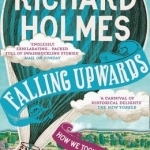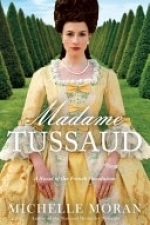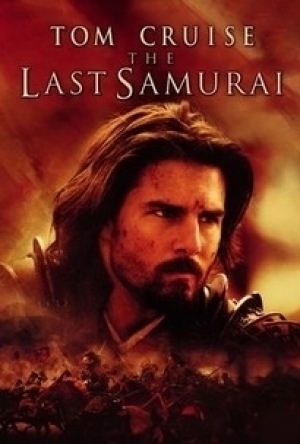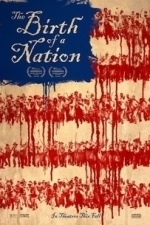Her Voice Will be on the Side of Right: Gender and Power in Women's Antebellum Antislavery Fiction
Book
Decades before the Civil War, the free American public was gripped by increasingly acrimonious...

Falling Upwards: How We Took to the Air
Book
'Nominally a history of the hot air balloon, 'Falling Upwards' is really a history of hope and...

Smithsonian Magazine
Entertainment and Magazines & Newspapers
App
***TO OUR USERS: Smithsonian magazine’s digital edition is undergoing a change of production...
Ryan Hill (152 KP) rated The Last Samurai (2003) in Movies
Jun 23, 2019
In the role of Algren, Cruise begins a dejected man living out of a bottle, bereft of purpose & suffering post-Civil War nightmares of a man touted as a hero despite feeling the guilt of slaughtering Indians crushed under the might of a military machine; in that sense, The Last Samurai is very anti-war in its message, John Logan's story painting the Americans and specifically the Imperialist Japanese not in the greatest light. Cruise takes Algren on a traditional voyage of discovery, first pitted against the samurai code & eventually becoming consumed by it, consumed by the similarity of the way of the warrior between both cultures - and Ken Watanabe's dignified samurai 'rebel' Katsumoto learns from him, as well as the other way around, with Cruise remaining stoic & only getting flashes of a chance to display the usual Cruise charm, but that's OK - Algren isn't the kind of character to benefit from that, Cruise's natural magnetism is enough here. Wit is provided thankfully through, albeit briefly, Billy Connolly as a tough old Irish veteran & chiefly Timothy Spall as our portly 'narrator' of sorts, who serves to help mythologise Algren & the legend itself. Zwick is most concerned with that, you see, the idea of legends and how men become them, exploring that concept alongside digging into the cultural rituals and practises of a changing Japan.
Algren's story is placed at a time when the old ways of Japan were shifting, under the pressures of global politics & business; the Emperor here is a naive young man, sitting on an empty throne, looking to Watanabe for validation as his advisor's push to quash a rebellion fighting to preserve the old ways, preserve Japanese interests as America knocks on the door. That's why Cruise's role here is so interesting, his character learning of the samurai code & helping those around him remember their history, and Zwick explores well the concept of national identity alongside personal ideas of myth, legend & destiny. It all boils together in a careful script, never overblown, which neatly develops the relationships involved & helps you fully believe Algren's transformation into the eponymous 'last samurai'. Along the way, Zwick doesn't forget theatrics - staging plenty of well staged & intense fight scenes which utilise the strong Japanese production design, before building to a quite epic war climax with army pitted against army, with personal stakes cutting through it, backed up indeed by another superlative score by Hans Zimmer. It becomes more than just a historical swords & armour film, reaching deeper on several levels.
What could have been a slow paced, potentially ponderous movie is avoided well by Edward Zwick, who with The Last Samurai delivers one of the stronger historical adventure epics of recent years. Beautifully shot in many places, with some excellent cinematography & production standards, not to mention an impressive script well acted in particular by Tom Cruise & Ken Watanabe, Zwick creates a recognisably Hollywood picture but for once a movie that doesn't dumb down, doesn't pander and ultimately serves as an often involving, often damn well made story. Especially one to check out if you love the way of the samurai.
Gareth von Kallenbach (980 KP) rated The Birth of a Nation (2016) in Movies
Jul 15, 2019
Nate Parker’s The Birth of a Nation tells a full story of Nat Turner and does not simply rely on the revolt to convey his message of a call for equality and fighting injustice. It is emblematic of resistance to the many sins this nation has committed. The film and story are a punch to the gut reminding Americans that there is much left unfinished with respect to telling the full story of slavery and American history as a whole. There is much of our past that we must reconcile with no matter how uncomfortable. Parker’s film demonstrates the power film has as historical record and permitting audiences to have a greater idea and picture of the past.
The Birth of A Nation allows audiences to become consumed with the horrors of slavery, but it is not limited to that aspect. It humanizes the slaves and demonstrates cultural aspects and relationships that have often gone ignored or overlooked with previous films. It does not rely on sensationalizing events in order to drive the points home. There is subtlety and honesty in the portrayal of the events and circumstances.
This is a film that will have audiences speechless at the end as the come to terms with their emotions about events as they unfold and coming to terms with what the witnessed onscreen. There is nothing that can prepare audiences for this film. It is a work of art that you cannot help but feel compelled to reflect on what you witnessed.
There are those who will not see the film due to the subject matter. There are others who won’t see it because of the sexual assault allegations against Nate Parker. There are many who won’t see it out of a pure lack of interest. Regardless of your stance, this is a film that needs to be seen. It is essential to telling a more complete story about America.

Lonely Planet San Antonio, Austin & Texas Backcountry Road Trips
Lonely Planet, Amy C. Balfour, Lisa Dunford and Mariella Krause
Book
Lonely Planet: The world's leading travel guide publisher Whether exploring your own backyard or...

Walden by Henry David Thoreau
Podcast
Two years, two months and two days! This is what forms the time line of one man's quest for the...

Firefly - Season 1
TV Season
Firefly is an American space western drama television series created by writer and director Joss...
Firefly Serenity Joss Whedon Browncoats TV Series Fox

Lonely Planet New England Fall Foliage Road Trips
Lonely Planet, Amy C. Balfour, Gregor Clark and Ned Friary
Book
Lonely Planet: The world's leading travel guide publisher Whether exploring your own backyard or...

Madame Tussaud: A Novel of the French Revolution
Book
The world knows Madame Tussaud as a wax artist extraordinaire . . . but who was this woman who...


